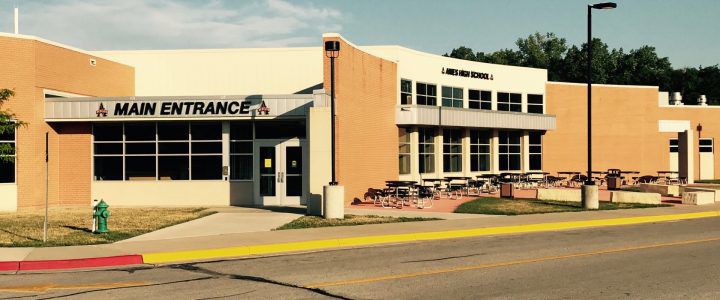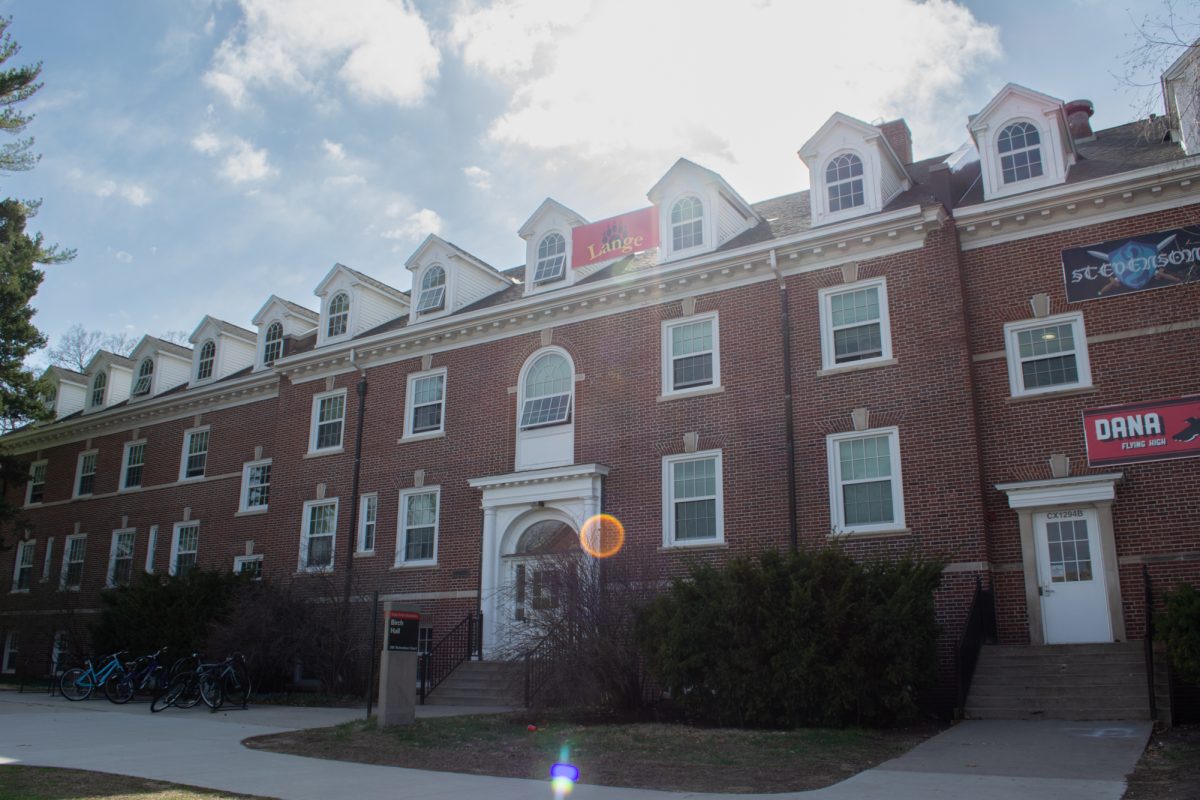Ames school district officials stand behind Black Lives Matter at School Action Week despite criticism
Ames Community K-12 schools adopted The Black Lives Matter in School Action Week from Feb. 1 to 5 during Black History Month.
March 11, 2021
Ames Community School District leaders faced criticism from Republican lawmakers for adopting a program called Black Lives Matter at School Action Week during Black History Month.
The program is not formally affiliated with the Black Lives Matter Global Network or any organization in the movement for Black lives, but it was designed to show that Black lives matter within the school walls throughout policies and practices.
“In terms of equity, you want to make sure all students have access to be able to experience that with all of our teachers,” said Anthony Jones, director of equity for the Ames Community School District.
Throughout Feb. 1 to 5, Ames community schools aimed to set aside time to teach about Black experiences beyond the history of slavery. The program affirms all Black identities by centering Black voices and empowering students. Jones said it is important to make sure all students’ needs are met, and the goal of this program was to do so on a systemic level.
The House Government Oversight Committee held a nearly two-hour meeting about Black Lives Matter at School Week of Action after lawmakers said they received complaints from some parents and teachers.
This district supplied resources for teachers to learn how to implement the program throughout their regular course plan, such as interviews, articles and podcasts. The district offered lessons from other teachers across the country who had already implemented the 13 guiding principles into their coursework. Jones said teachers could use this as a guide when catering the curriculum for their students and class.
Rep. Bobby Kaufmann, R-Wilton, an advocate for Iowa’s vote ID laws, took offense to the program, calling it “garbage” and claiming the district abused their power.
For the last three to four years, the Ames Community School District has engaged in learning critical consciousness training. Starting at the district level, the training went on to include school principals and instructional coaches. Select teachers from each school were invited to be a part of the equity-building capacity team. Jones said once this process was completed, all teachers were included in the training.
“It is better to have a small number of people learning it so you can engage in conversation,” Jones said.
The five days are dedicated to benefit all students. According to the Ames Community School District website, the program can be transformative for non-Black students, particularly white students who often have a narrow view based on life experiences.
“We realize there is other representation in our building, and we just want to make sure we are bringing all conversations into the classroom,” Jones said.
Jones had engaged with teachers across the state, and many white teachers who grew up in less-diverse areas reported they never learned anything like the Black Lives Matter in School Action Week curriculum.
This is one of the reasons why Jones defends the curriculum.
“We want to make sure that the privilege and the access that our white students have by being in Ames because we all claim that Ames is very diverse because of Iowa State University,” Jones said. “We want to be able to have conversations so we are not graduating our students from Ames High without having interactions and an understanding of how to interact with different people.”
Parents were able to opt their children out of the program, just as they can or could for any curriculum. While the program was not mandatory for teachers to use, Jones said he was shocked when some teachers chose not to incorporate the content.
Jones said the district will revisit this when preparing for next year along with the feedback they received from teachers, parents and community members. The greatest piece of feedback the district received from teachers was for more time to engage and learn from the training.
“Teachers always want to be able to put their best foot forward, they want to be prepared so they are comfortable teaching the lessons,” Jones said.
The 13 principles that guide Black Lives Matter at school include commitments to embracing and creating space for identities including transgender and queer people as well as Black women. The principles also commit to restorative justice, empathy and loving engagement.
Rep. Holly Brink, R-Oskaloosa, had concerns about instructing a queer and transgender live affirming message to students at the developmental level. When considering these concerns, Jones said they don’t plan to soften any of the principles but instead try to make the curriculum better directed for the Ames community.
“We say queer- and trans-affirming, we are going to make sure we say queer- and trans-affirming in terms of principles,” Jones said. “However, in the classroom, we structure, we are probably going to use more terms like LQBTQ+ just to kind of be more direct in our approach.”
Rep. Steven Holt, R-Denison, questions what the district had done to remember and celebrate Bill of Rights day or Free Speech day.
“It is most interesting to me that the equity and equality that you speak of appears to disregard character and focus instead on color, race-shaming and scapegoating, turning Dr. Martin Luther King’s dreams on their head,” Holt said.
Jones said the purpose of the Black Lives Matter in School Action Week is to encourage Black joy and show Black culture is more than just the history of figures like Martin Luther King, Rosa Parks and George Washington Carver.
“Do not feel like you have to hide being Black, we want you to have joy,” Jones said. “We have highlighted too much that Black students are the lowest-performing [in] math and reading; we want to know some of the things Black people have done and to center that joy. We want to say that more openly.”
During the meeting, lawmakers were also concerned about the lack of alternative viewpoints. Jones responded that the program was only a week and asked what other side is being taught the rest of the school year.
“What we are doing is bringing ideology into the conversation, but not just ideology, we are also bringing people,” Jones said. “These are not just ideas, so if somebody says they are gay, that is not an idea, we do have gay people in our system. So we aren’t talking about philosophy and ideas that are in the air; we are talking about real people and bringing them into the conversation. If that is political, then yes, it is political.”







